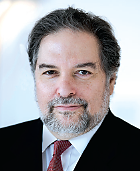Creating a Strong Future for Psychiatry

July is the beginning of the heart of summer, a time for family trips and the run up, at least in my part of the country (Boston), to the dog days of August. It is also the beginning—and end—of the academic year. Residents finish their training and graduate, often to fellowships or to clinical practice. Surrounded by attentive and proud family, women and men who just a few short years previously had taken their first tentative nights on call are now experienced junior colleagues. Familiar with the challenges of clinical care and the exigencies of the care system, they are ready to move on.
In their wake come new residents: new medical school graduates, ȳmigrȳs from other medical fields, and physicians with a wealth of experience who have fully trained in other countries and are now starting over so that they can practice here.
Regardless of their background or prior expertise, the arrival of new residents and fellows marks a renewal of our annual effort to transform relatively unformed but eager fledglings into effective psychiatrists. More importantly, it is a renewal of our commitment to the future. And not just the foreseeable future, but a future that stretches out beyond the horizon of our imaginings. Residents who complete training at age 30 in 2018 are likely to still be practicing in 2060. The world they will inhabit, the knowledge they will have about the brain, its interactions with the environment, and the boundaries of the illnesses confronting them will surely be different from what we can today envision.
Our mission is in part to create our professional offspring, to prepare them to think critically about received wisdom. At the same time, we must train them in the verities: to be careful observers of patients and their families, to use all their medical training in caring for the sick, to listen carefully to what is said and unsaid when taking a history, and to prod each patient’s story—gently, but when needed, decisively—into a form that is in service of their care. And to put aside considerations of personal interest and time.
These tasks, as well as incorporating the explosion of new findings in basic and cognitive neuroscience in training, the preparation for practicing in integrated care and other emerging delivery systems, and having only four years in which to impart so much knowledge and develop high-level patient-care skills in a system that is putting more emphasis on measuring outcomes, represent a broader challenge for our field. But that’s not all: in light of financing pressures on graduate medical education and the entire academic medical enterprise and at a time when the flood of new findings in neuroscience have yet to lead to an overarching model of brain functioning or taxonomy of illness, what should residency training look like? What are the first-order principles that should guide our thinking as we consider the timing, sequence, and duration of training, so that our field is as strongly prepared as possible to face an unclear future? These are among the issues we all need to consider carefully if there are to be well-trained psychiatrists 10, 20, or even 40 years from now.
To that end, APA has a responsibility to help the field prepare as best we can over the next few years, even if it is hard to see that far and impossible to see further. I will be appointing an ad hoc work group of the Board of Trustees on education and training, which will be chaired by Rick Summers, M.D., the chair of our Council on Medical Education and a former AADPRT president, and include representatives of key educational organizations. Such work groups are appointed for a year, sometimes renewed for a longer term, to deal with a specific issue about which the Board needs direct and immediate input, issues that may fall outside the purview of any single component or that may stretch the capacities of a given council or committee.
As we approach the end of July, the days are still long but growing imperceptibly shorter. It is a time of transition. Let us celebrate the trainees who have moved on and those who have just arrived: they are our collective future. They deserve our best. ■



